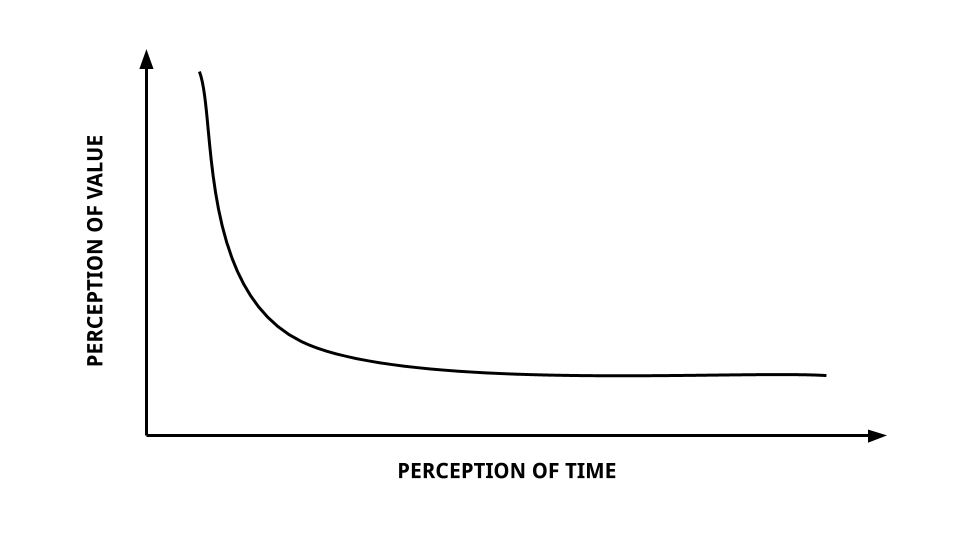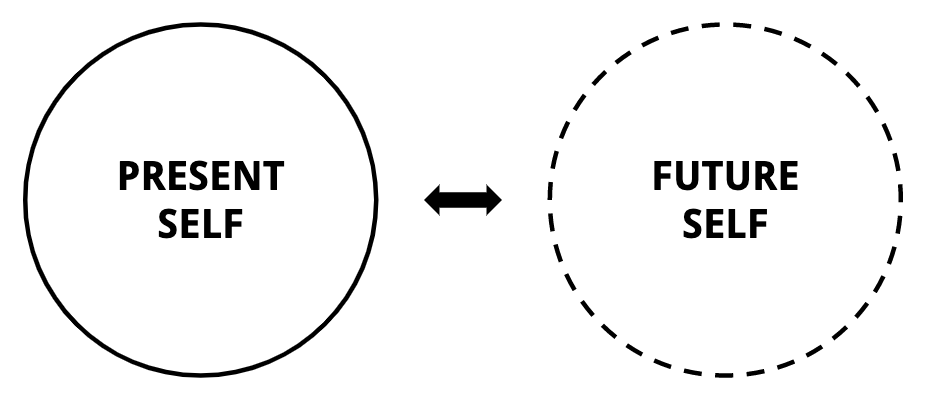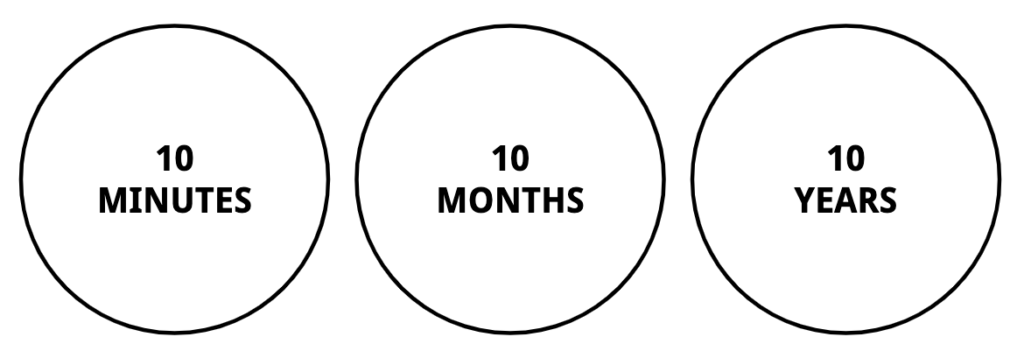As humans, we tend to favour our present self at the expense of our future self. Our present self will eat an extra piece of cake, skip a training session, drink too much, stay up late, or procrastinate; our future self is left dealing with the consequences. This phenomenon is called temporal discounting. The further in the future the consequences, the least we pay attention to them.

Temporal discounting is a survival mechanism. When you are living in nature and fighting for your life, it makes sense to make the most of whatever is available now. But in a society where we live longer and in safer environments, this survival mechanism has become unhealthy for many—both physically and mentally.
In-the-moment decisions have a compound effect: while each of them doesn’t feel like a big deal, they add up overtime. Good decisions lead to desirable outcomes, bad decisions to undesirable outcomes.
Bring your future self in the decision-making process
Anne Duke is a professional poker player who used to be the leading money winner among women in World Series of Poker history. Her total lifetime live tournament winnings exceed $4 million. In her book Thinking in Bets, she writes: “Bringing our future self into the decision gets us started thinking about the future consequences of those in-the-moment decisions.”

Instead of letting your present self make the decision on their own, ignoring the experience of your future self who will need to deal with the consequences later, turn the one-way decision process into a conversation between your present and future self.
“We all want to feel good about ourselves in the moment, even if it’s at the expense of our long-term goals.”
Anne Duke, Professional Poker Player.
Harness the power of regret to overcome temporal discounting
Emotions are a tool. They can be used as a source of information to understand the way we feel, but they can also be used more proactively to influence our behaviour and decision-making process.
Because it happens after an event has happened, most of us see regret in a negative light. Why bother with such an unproductive emotion, since we can’t go back and change the past? But regret is a powerful emotion which can be harnessed to improve our future.
Before making a decision, put yourself in the shoes of your future self. Make a real effort to visualise how your future self will feel about the decision of your present self, which will become your past self.
This visualisation technique can be used for small and big decisions alike. Thinking of eating that extra piece of cake? Walk yourself through the likely thoughts of your future self. Want to spend a large sum of money on a piece of tech you’re not sure yet how you will use? Think about how your future self will feel about the decision.
This simple approach to avoiding bad decisions is an example of second-level thinking. Instead of going for the most immediate, obvious, comfortable decision, using your future regrets as a tool for thought is a way to ensure you consider the potential negative outcomes.
And if after going through this process you think you do actually deserve that second piece of cake, or you do need a break from training, or your future self would actually be happy to play with that expensive piece of tech without a specific plan in mind—then, go ahead.
Visualising potential regrets is not a way to stop you from making any decision. It’s a way to consider how the decision will make you feel in the future. If the exercise brings you to the conclusion that your future self will feel fine about it, that’s a perfectly valid conclusion.
Use the 10-10-10 method of decision-making
Sometimes, we don’t have the mental energy to properly visualise the potential feelings of our future self. In these cases, a more structured approach can be used to bring your future self in the decision-making process.
The 10-10-10 method consists in asking yourself a series of three thought-provoking questions to help you project yourself in the future.
- What are the consequences of this decision in 10 minutes?
- What are the consequences in 10 months?
- In 10 years?

Asking yourself these three questions is a great way to keep yourself accountable. To make it even more powerful, ask yourself: what is the compound effect of this decision in 10 minutes, 10 months, 10 years?
Fighting our tendency for temporal discounting is not easy. It’s a deeply ingrained behaviour. You may not be able to make the right decision all the time, but allowing your future self to join the conversation will at least ensure you consider a wider range of potential consequences.
